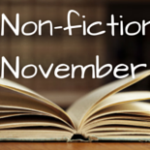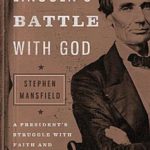Title: The Gift: Poems by Hafiz, the Great Sufi Master
Author: Hafiz (Translated by Daniel Ladinsky)
Genre: Non-fiction, Poetry
Publication Date: 1999
Purchase Price: $17.00 (paperback)
I spent a lot of time in high school English classes what all the fuss was about when it came to poetry. Other than my already-noted affinity for Shakespeare, and the occasional dalliance with Alfred, Lord Tennyson, my enjoyment of poetry generally extends no further than dirty limericks.
Rather recently, however, I have decided that what I don’t like is modern poetry; apparently I just needed to find more of the old stuff.
I know: Shakespeare’s old, right? The poetry in today’s book was written during the 14th century, several hundred years before Bill S. was a gleam in his parents’ eyes.
The great Sufi master
Shams-ud-din Muhammad was born around 1320 in Shiraz, an area of Persia (now Iran).
The youngest son of poor parents, he spent his days working in a bakery while putting himself through schooling.
He chose the name Hafiz (“memorizer”) as a pen name when he began to write poetry; it is a title given to someone who knows the entire Quran by heart, as he supposedly did.
After studying with some of the great Persian poets of the time, Hafiz gained popularity in the court, and was often invited to participate in poetry gatherings in Shiraz. He won patronage from the wealthier citizens, worked as a college professor, married and had at least one child.
Yet for all of that, Hafiz spent a lot of time in trouble. His poetry quite often expressed thoughts that bordered on heresy, and he would be exiled whenever a more orthodox group came into power.
As a young man, Hafiz became a disciple of a Sufi teacher, and eventually became a Sufi master himself. His poetry exemplifies Sufism through its emphasis on intense, often ecstatic, complete devotion to God.
By the time he was sixty, Hafiz had gained enough notoriety to be considered a master poet. He served as teacher and counselor to a select group of students and friends until his death around 1389.
Although extremely popular throughout Persia, Hafiz’s works were not known in the West until German poet Goethe brought them to the attention of Ralph Waldo Emerson in the 19th century. Emerson translated the works of the Sufi master, and the rest is history.
Even today, more copies of Divan-I-Hafiz (Hafiz’s poetry collection) are sold in Iran than copies of the Quran.
The faces of God
Many religious tend to put a lot of separation between God and His followers; God is often seen as a distant figure, if not a downright vengeful entity.
The Gift was not only a refreshing way to see God; it was a bit uncomfortable as well. I’ve never been disposed to think of God as a particularly chummy deity, but time and time again Hafiz portrays Him as an advisor, companion, best friend, and even a lover.
Hafiz’s God is also often portrayed as having a well-formed sense of humor, which is something a deity should possess in great quantities if He can possibly help it.
Although most of his poetry covers pretty deep/metaphysical topics, there’s nothing overtly complex or flowery about Hafiz’s language. This could be a reflection of the translator, but either way it’s nice to see religious poetry that’s not heavy-handed.
All in all, I’m glad that I was introduced to Hafiz. The Gift will enjoy prominent placement on my shelves from here on out.
What do you think about religious poetry, or poetry in general? Who are some of your favorite poets?





